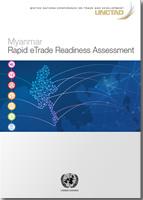
Myanmar can be considered a latecomer to the e-commerce revolution, having experienced international isolation until 2011. The steps Myanmar made since have been very encouraging, as evidenced by one of the world’s fastest mobile and smartphones penetration.
Myanmar’s robust development is fueled partly by the adoption of ICT and the development of e-commerce. Business accelerators, venture capitalists and the ever-increasing number of tech start-ups are clear evidence that Myanmar’s e-commerce scene is booming – albeit from a low level - and Myanmar is no longer considered a frontier market when it comes to digital innovation.
While Myanmar’s e-commerce future looks bright, a considerable amount of work for the Government remains, particularly in improving and updating the legislative and regulatory framework (addressing consumer protection, privacy, security of transactions, cybercrime, and other concerns in an online environment), ICT and payment infrastructure.
Respondents to the online survey and private sector firms joining focus group discussions organized in the context of this assessment all concluded that the ICT and mobile telephony sectors were the prime beneficiaries of the current boom. In the long run, they estimated that retail, healthcare and tourism could benefit the most from the e-commerce uptake, though most respondents failed to see how cross-border e-commerce, other than for import of consumer goods, could help address the increasing foreign trade imbalance.
As a next step, Myanmar should consider harnessing the potential of e-commerce by developing a national vision and strategy for e-commerce. UNCTAD support in e-commerce strategy formulation, based on the findings of this Rapid eTrade Readiness Assessment, would provide the necessary tools to Government to create and disseminate this vision.
On the longer term, the Government needs to create an e-commerce ecosystem to stimulate digital innovation, online sales, exports of products, as well as enabling an environment for those services where Myanmar has a competitive edge. This will be expected to drive future export diversification and growth, contrasting with the current focus on domestic sales and retails, where only a limited number of SMEs are able to benefit from the e-commerce uptake.


